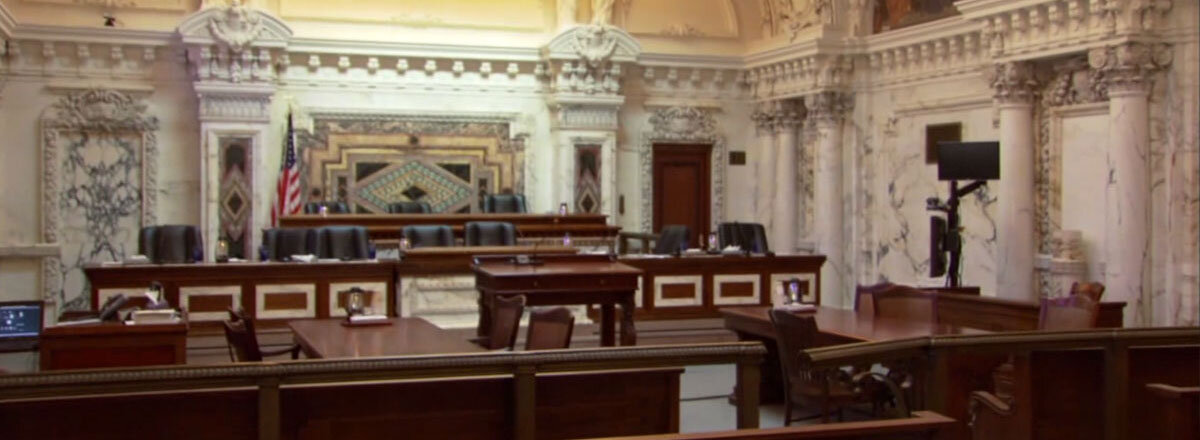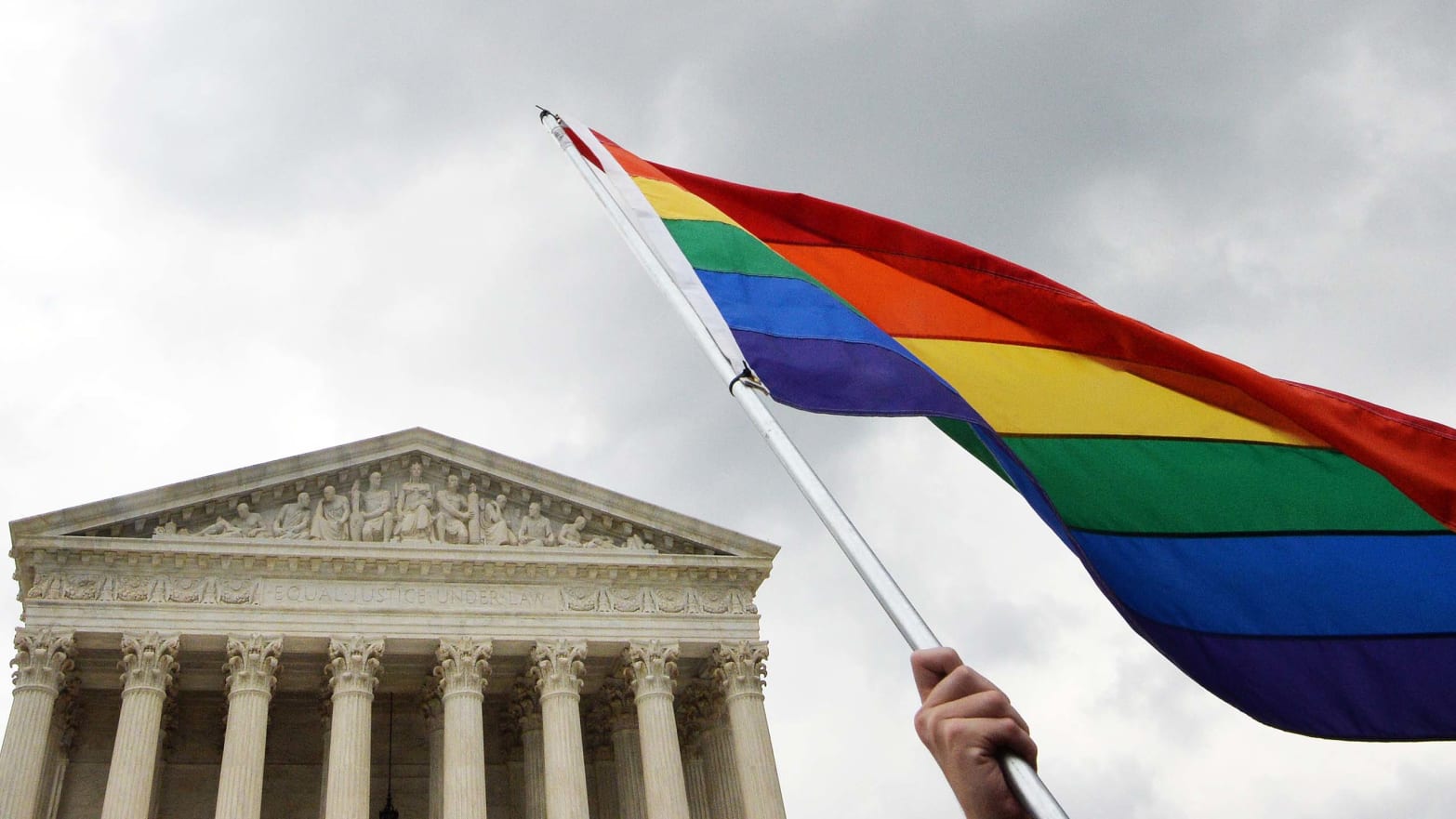Amicus Cases
We author new Amicus Briefs annually for impact litigation
Every year, the Impact Fund files amicus or "friend of the court" briefs in cases affecting impact litigation or civil rights enforcement. Here are some issues we recently addressed. For older amicus briefs, please contact us.
New Amicus Cases
Older Briefs Filed by the Impact Fund
Second Circuit Affirms Certification in Jacob v. Duane Reade Inc.
In 2015, the Second Circuit Court of Appeals affirmed class certification in an overtime lawsuit brought on behalf of Duane Reade assistant managers. In a huge win for workers, the Second Circuit held that the U.S. Supreme Court’s decision in Comcast v. Behrend did not limit the district court’s authority to certify the case as a class action with respect to Duane Reade’s liability for overtime pay, leaving damages for separate hearings. Congratulations to our friends at Outten & Golden on a great win! Impact Fund together with Cohen Milstein filed an Amicus Brief in support of the class certification.
Can Employers Force Their Employees to Litigate Their Claims Out Of State?
On November 20, 2014, the California Supreme Court granted review in Galen v. Redfin Corporation, 227 Cal. App. 4th 1525 (2014). In Galen, the Court of Appeals refused to invalidate an arbitration agreement requiring California workers to litigate their claims in Washington, and containing a fee-shifting provision that could force the plaintiff to pay the defendant’s fees and costs in the event of a loss. The Impact Fund drafted and filed an amicus letter to the California Supreme Court in support of the plaintiffs’ petition for review. Our letter focused on the chilling effect that agreements like this would have on the ability of California’s low-wage workers to vindicate their statutory rights.
Should All Injured California Workers Have Access to the Courts?
The Impact Fund co-authored an amicus brief with the National Employment Law Project and the National Immigration Law Center in Salas v. Sierra Chemical Co., which posed the question of whether equitable doctrines such as “unclean hands” and “after-acquired evidence” can be used to deprive an allegedly undocumented worker, who suffered a disabling injury on the job, of any form of relief under California’s Fair Employment and Housing Act (“FEHA”). We submitted the brief to address the troubling implications of the case for the right to redress for undocumented workers generally and for the statutory protections afforded to all workers in this State. In a huge victory for workers, the California Supreme Court held that these doctrines could not be used as complete defenses against the plaintiff’s FEHA claims, explaining that such a result “would eviscerate the public policies embodied in the FEHA by allowing an employer to engage in invidious employment discrimination with total impunity.”
The U.S. Supreme Court let stand the Supreme Court of California's August 2014 opinion which reaffirmed that, with few exceptions, undocumented workers enjoy the same state law protections and remedies against workplace abuses as all other employees in the California workplace. By denying the employer's petition for a writ of certiorari, the high court also permitted Vicente Salas's disability discrimination claim to go to trial despite his employer's unsubstantiated allegation that Mr. Salas had used another person's Social Security number to obtain his job. It thus chose not to disturb the California Supreme Court's ruling that, even if that were true, overriding California public policy mandated that Mr. Salas must nonetheless be allowed to vindicate his right to be free from unlawful employer actions. As a result, Mr. Salas' claim will finally have its day in court.
Can Employee Misclassification Be Challenged on a Class-Wide Basis?
The Impact Fund filed an amicus brief in an employment class action before the California Supreme Court in Ayala v. Antelope Valley Press. Plaintiffs are newspaper delivery workers allegedly misclassified as independent contractors who were denied wages and benefits guaranteed by the California Labor Code. The trial court denied class certification, concluding that proof of employee status would necessarily entail individual inquiries. The Court of Appeal partially reversed. Our brief, which we co-authored with the Legal Aid Society-Employment Law Center, was joined by 12 other low-wage worker advocacy organizations. Knowing that the Supreme Court’s decision in Ayala would impact California’s jurisprudence on class action treatment of employment cases in general, we appeared as amici to offer the unique perspective of legal service practitioners, explain the importance of this case to their clients’ interests, summarize the policy reasons why the class-wide remedies must be available in misclassification cases, and offer a structural approach to resolving such cases. The California Supreme Court decided the case on June 30, 2014. It held that the trial court had erred by denying class certification on the ground that proof of employee status would necessarily entail individual inquiries. The trial court improperly considered the extent of the defendant’s legal right of control—a merits issue—rather than considering whether the defendant’s right of control was subject to individual variations.
Should Class Action Waivers be Enforced in California?
The Impact Fund joined an amicus brief in Iskanian v. CLS Transportation Los Angeles, LLC, which addressed the continuing viability of Gentry v. Super. Ct. (2007) 42 Cal.4th 443. In Gentry, the court had held that at least some class action waivers would be not enforced on public policy grounds. Together with AARP, Equal Rights Advocates, and a class member from a different case, we submitted a brief explaining why Gentry remained (and should remain) good law, even after the Supreme Court’s decision in AT&T Mobility LLC v. Concepcion, 131 S. Ct. 1740 (2011). The California Supreme Court issued a decision in the case, holding that an express class action waiver in an employment arbitration agreement is enforceable under California law, and that Gentry is no longer good law after Concepcion. It further held that a claim under the Private Attorney General Act (PAGA) could not be precluded by an arbitration agreement.
Does a Rule 68 Offer to the Named Plaintiff Moot a Case Under the FLSA?
We filed an amicus brief to the U.S. Supreme Court in Genesis Healthcare Corp. v. Symczyk, to underscore the importance of the well-settled precedent that an offer of judgment may not be used to "pick off" named plaintiffs in a Federal Rule of Civil Procedure 23 action. In a recent 5-4 decision, the Court assumed without deciding that Ms. Symczyk’s individual claim was moot, concluding that she had no personal interest in representing unnamed, putative claimants and that the Court therefore lacked subject matter jurisdiction over the case. Justice Kagan wrote a strong dissent, arguing that the question the majority answers should never arise because an unaccepted Rule 68 offer does not moot a claim, and emphasizing that the unique circumstances limit the impact of the case.
What is the Role of Aggregate Proof in Class Action Cases?
In Duran v. U.S. Bank National Association and Braun v. Wal-Mart, we asked the California and Pennsylvania Supreme Courts to reaffirm the crucial role of aggregate proof in class action trials. In both cases, the plaintiffs proved their damages through sampling, extrapolation, and representative testimony because the defendants had not kept appropriate records. In both cases, we discussed the enormous body of law approving the use of aggregate proof in many substantive contexts, refuting the defendants’ claims of a due process right to individualized proof.
In Duran, employees alleged that they were misclassified as exempt and erroneously denied overtime pay. The court of appeal reversed a $14 million judgment and decertified the class, rejecting plaintiffs’ proof of aggregate damages and holding that the employer should have been allowed to question absent class members at trial. The California Supreme Court decided Duran in May 2014. The court upheld the reversal of the verdict, concluding that the trial plan was unjust. However, it did not categorically foreclose the use of common proof (e.g., statistical sampling or representative testimony) in wage and hour class actions, and reaffirmed the ability of plaintiffs to prove misclassification on a class-wide basis. The court also held that there is no due process right to litigate an affirmative defense as to each individual class member.
In Braun, workers won a $187 million jury verdict for missed rest breaks and off-the-clock work. In December 2014, the Supreme Court of Pennsylvania affirmed the judgment, rejecting Wal-Mart’s argument that it had been denied due process through a “Trial by Formula.” The Supreme Court explained that the plaintiffs had established liability through Wal-Mart’s own universal policies, as well as its own business records and audit documents. The court recognized that in wage and hour cases involving record-keeping violations, the burden on plaintiffs to prove damages is relaxed, and employees may prove their hours through representative testimony. The court explained that the plaintiffs had appropriately “offered data and analysis from Wal-Mart’s own business records, including time clock and cashier log-in data, to support their claim of damages related to systemic wage and hour violations.”



































The brief calls out Acheson’s attempts to argue the merits of Ms. Laufer’s case as a distraction to the straightforward standing inquiry at hand. Standing is a threshold issue that requires plaintiff’s allegations be taken as true. This low bar is cleared by the mere allegation of a concrete injury. Arguments about the merit of Ms. Laufer’s case including whether she experienced the “right type of discrimination” that warrants ADA protection and the degree of emotional harm she suffered are inappropriate to the threshold matter of standing and subject to review in future motions. In summary, Ms. Laufer alleges that she personally experienced discrimination, a harm in itself sufficient for standing, so Ms. Laufer has standing.